Yorgos Lanthimos | 2hr 21min

Unlike Mary Shelley and her fellow Gothic writers, Yorgos Lanthimos is not greatly bothered by man’s displacement of God through scientific progress. The artificial creation of life in Poor Things no doubt induces feelings of profound discomfort and horror, though the ethical dilemmas raised here are more fanciful in their eccentric incongruencies and psychological implications. Where Frankenstein hid great existential horror within the prospect of creating artificial life, Poor Things hides a majestic appreciation for humanity within an even more disturbing biological experiment – the transplant of an unborn baby’s brain into the body of her tragically deceased mother. When confronted with accusations of transgressing the laws of nature, mad scientist Dr Godwin Baxter returns a simple question that lightens his moral darkness to a medium grey.
“Would you rather the world had not have Bella?”
It is true that he has sentenced this infant to grow up inside the body of an adult, but so too has he effectively saved her life. In much the same way a child reveres their parent or a believer worships their deity, Bella appropriately gives her own endearing nickname to the professor – God. Along with his duck-dog hybrids and barking rooster, she joins his fantastic menagerie of similarly Frankensteined creatures that he leads as a lumpy misfit of the highest order. Lanthimos doesn’t hide the Garden of Eden allegory that encases Bella in a sanctuary of grotesque innocence, though the overtness of the metaphor is no concern. After all, it is merely the starting point for Bella’s coming-of-age odyssey across Europe and Africa, where Lanthimos aims his offbeat, satirical wit at the modern complexities of sex and gender.
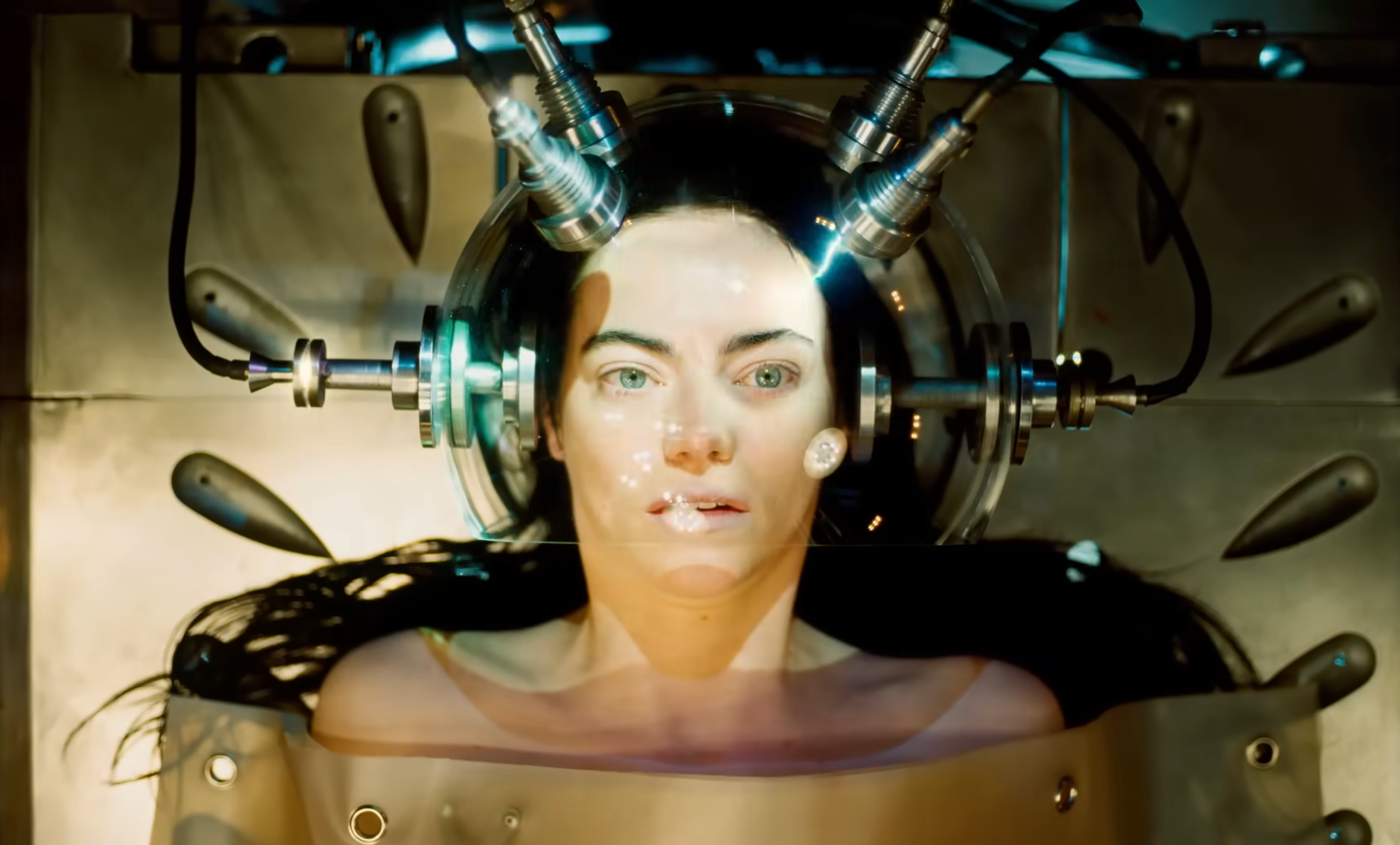
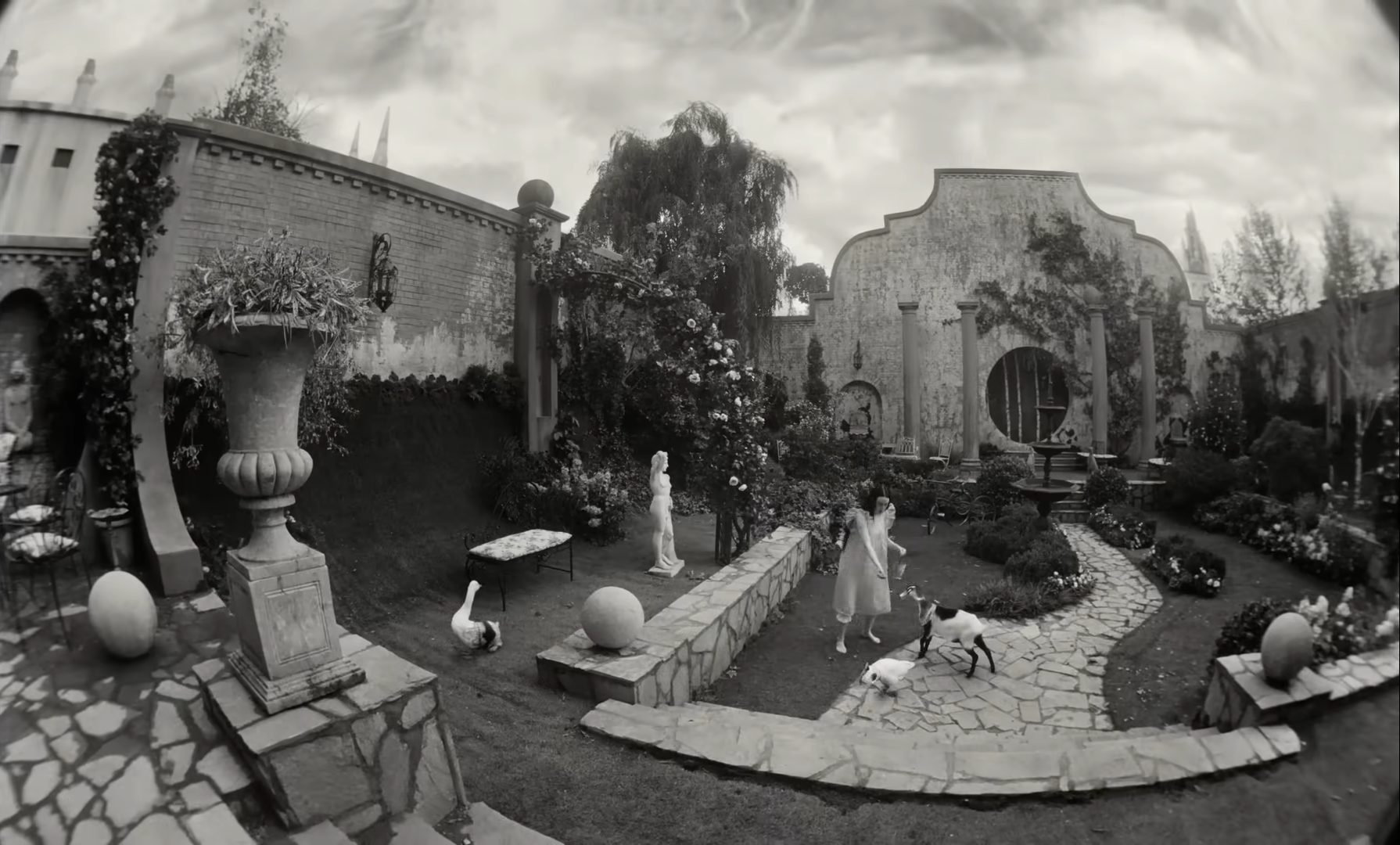
With The Favourite being a watershed moment for Lanthimos’ development as a cinematic artist, Poor Things continues that stylistic trajectory of surreal brilliance which elevates his most recent work above his first few films. His auteur trademarks are instantly recognisable, distorting detailed sets through wide-angle lenses to dramatically stretch its elaborate features, and fish-eye lenses that seem like voyeuristic peepholes. Long dissolves are also Lanthimos’ editing device of choice to convey his characters’ slippery grasp on reality, just as our own perspective is challenged in visual gags that force us to look twice at images as simple as a horse pulling a carriage. No doubt his continued collaboration with writer Tony McNamara pays off marvellously as well, delivering an absurd, biting wit that punctuates stiff formalities with anachronistic profanities and heightened slapstick.
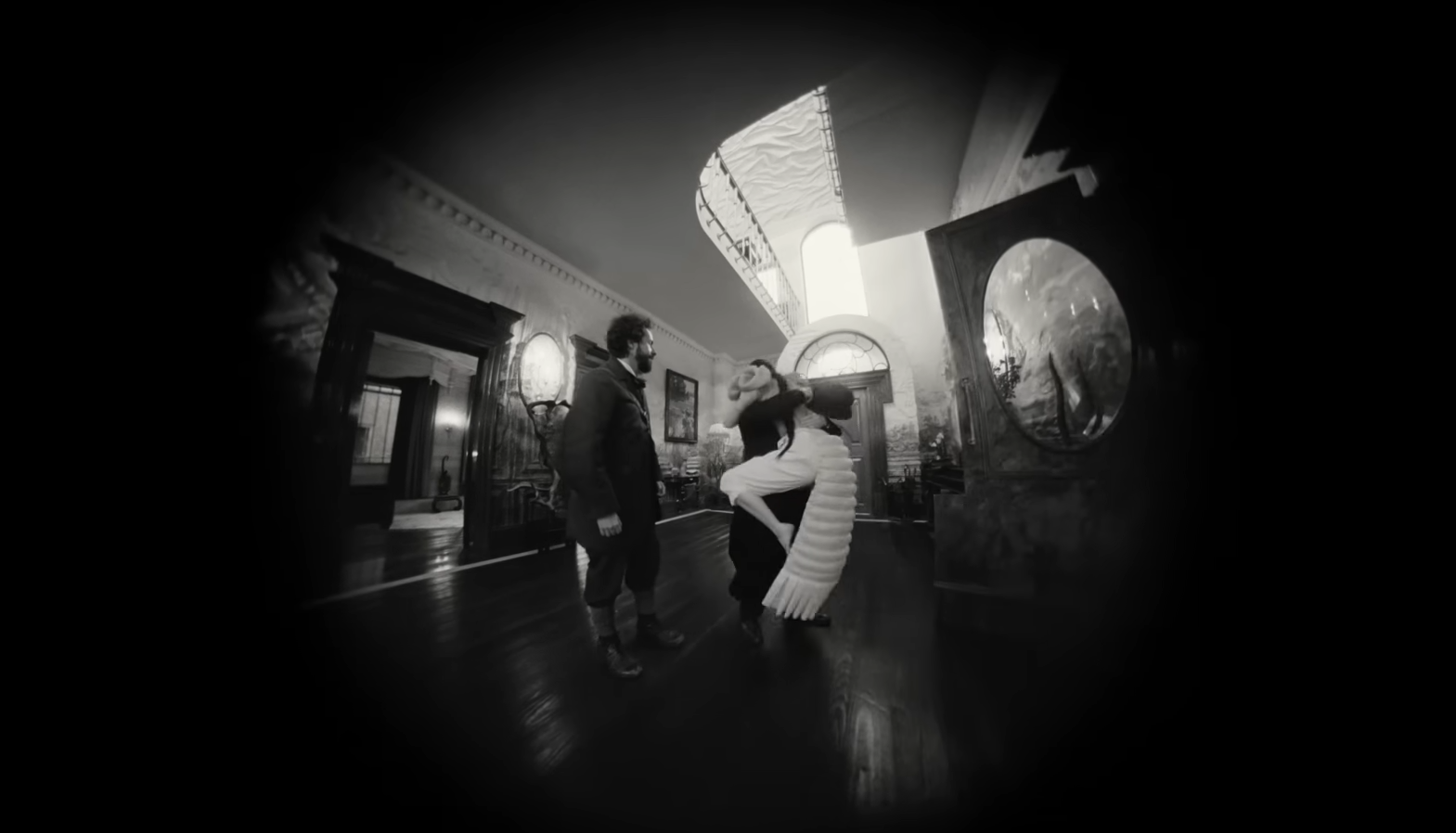
And yet even with all these similarities in mind, the epic adventure that carries Bella across oceans in Poor Things is far more sprawling than the tightly contained worlds of Lanthimos’ other films. For the first time in his career, soundstages are used in place of real locations, allowing for a level of visual control and curation that his previous budgets could not afford. Traces of Terry Gilliam’s eccentric surrealism can be found everywhere, adopting avant-garde camera angles that warp insanely constructed set pieces beyond any hint of realism, from God’s giant Gothic manor to the castle-like cruise ship of turrets and towers. Tracking shots and zooms navigate these scenes with a steady fluidity, as rigorously measured as the production design itself, though they only barely mask the hidden chaos of Bella’s existence.

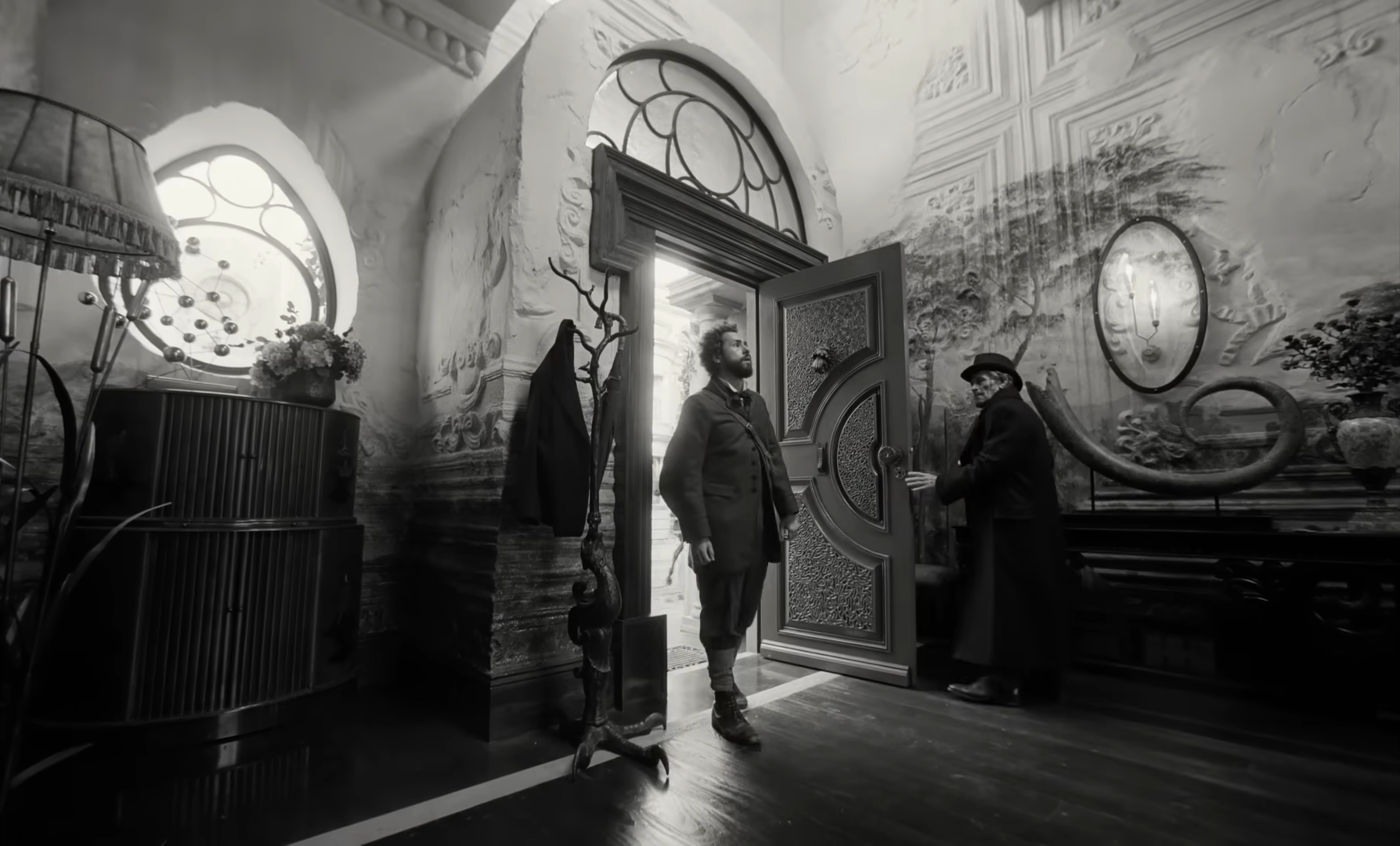
At its most dreamlike, Poor Things interprets Bella’s voyage through wispy, greyscale images of her riding grotesque fish and crossing bridges in slow-motion, and uses these abstractions as chapter breaks between each new location. Within her actual adventure, purple swirls and angry blue clouds stretch across vast, starry skies that could have been painted by Vincent van Gogh, and cast impressionistic textures over miniatures of steampunk cities. In Lisbon, trams are suspended by wires between 19th-century buildings, and hot air balloons shaped like UFOs float above the urban skyline. Elsewhere, Alexandria is depicted as a sandstone hellscape of extreme poverty steeped in fiery golden hues, and the monochromatic streets of Paris offer respite with its sheets of soft, powdery snow. The idiosyncratic palettes of these settings are also made all the more vibrant by Lanthimos’ choice to starkly shoot most of the film’s first act in black-and-white, formally sectioning off Bella’s confinement to God’s manor from her extraordinary, colourful journey of discovery.
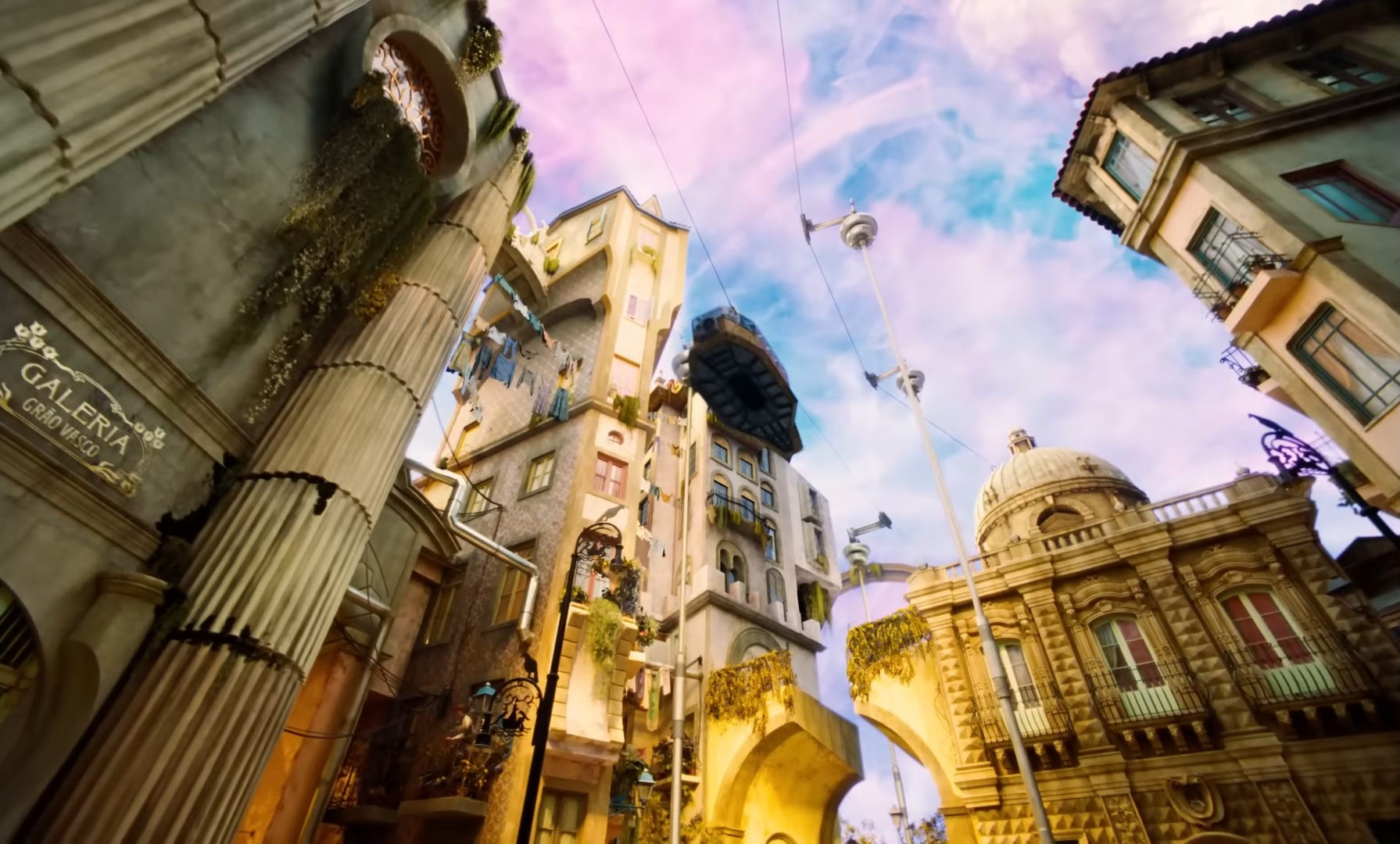
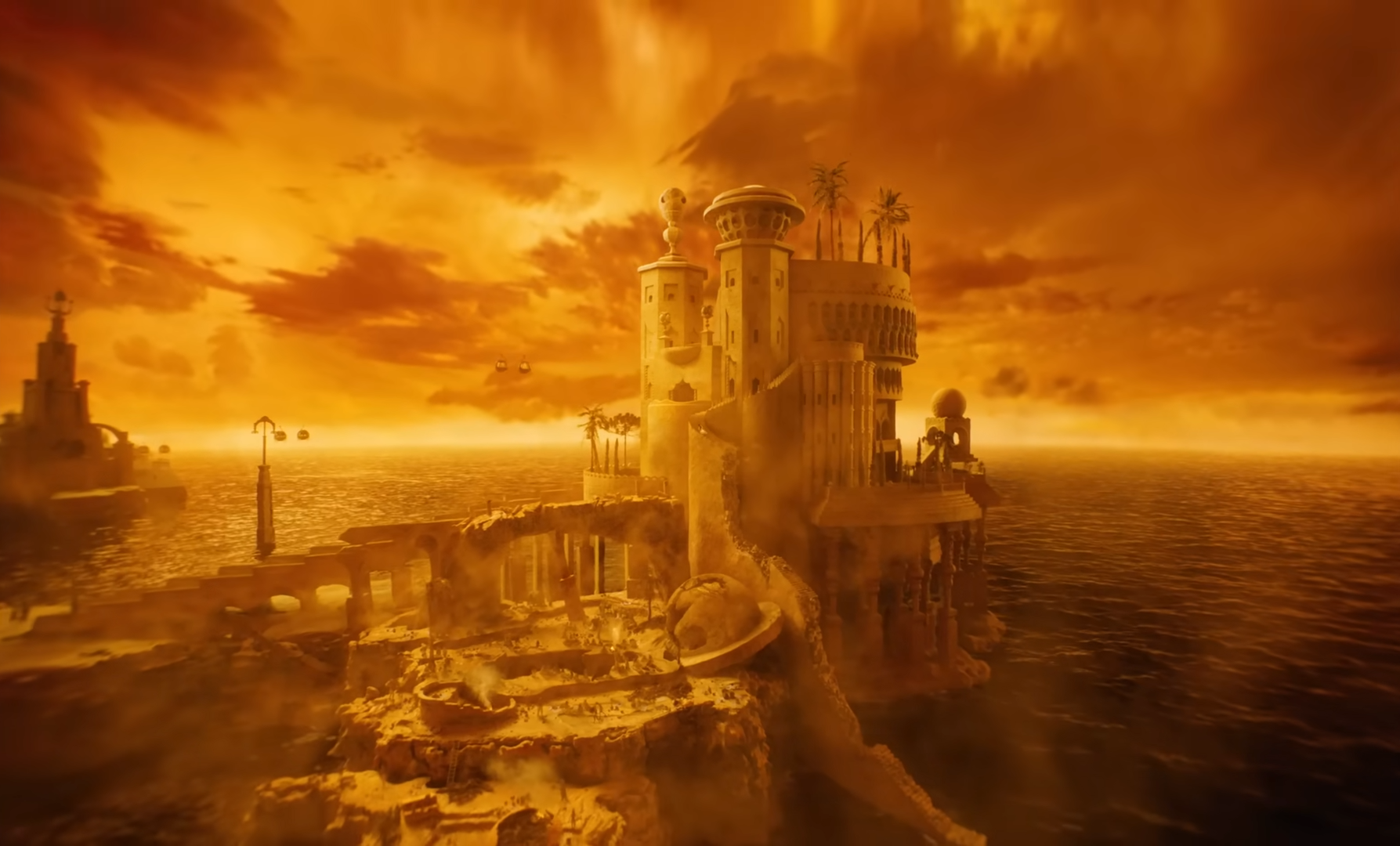
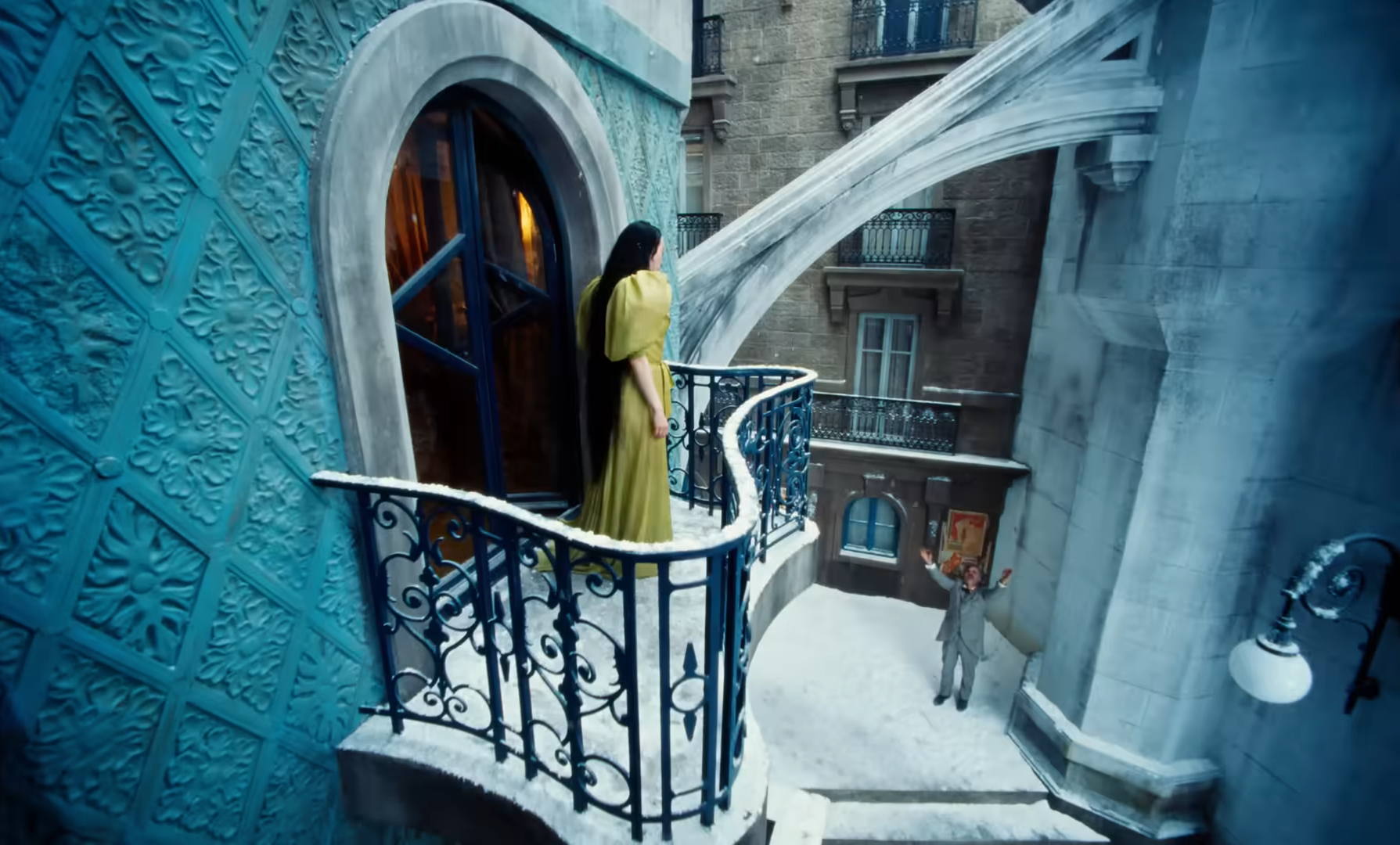
With such an imaginative production design landing Poor Things among the most handsome films of the past few years, and a screenplay as boldly funny as McNamara’s, it takes an extravagantly talented ensemble to match this heightened world. Ramy Youssef and Jerrod Carmichael are the only ones who apply a little too much restraint here, while Willem Dafoe and Mark Ruffalo strike a perfect balance between chewing the scenery and precise comic timing.
To go this long without mentioning Emma Stone though is a crime. Her achievement as Bella stands among her very best, playing out an extraordinary but gradual evolution from incoherent infancy to liberated young adulthood. “What a very pretty retard,” her future husband proclaims early on as he watches her toddler-self jump and spin in uncoordinated motions, and it is this incongruency between her mind and body which forms the rich foundation of Lanthimos’ comedy and drama. Given her womanly appearance, Bella is not shielded from society’s archaic gender politics, and yet like most children she is a being of pure impulse who pursues whatever momentary sensory pleasures come her way. In this unique instance, it is only natural that her sexual discovery of “furious jumping” quickly becomes a carnal yet innocent obsession, and one that men like rakish cad Duncan Wedderburn selfishly seek to exploit.
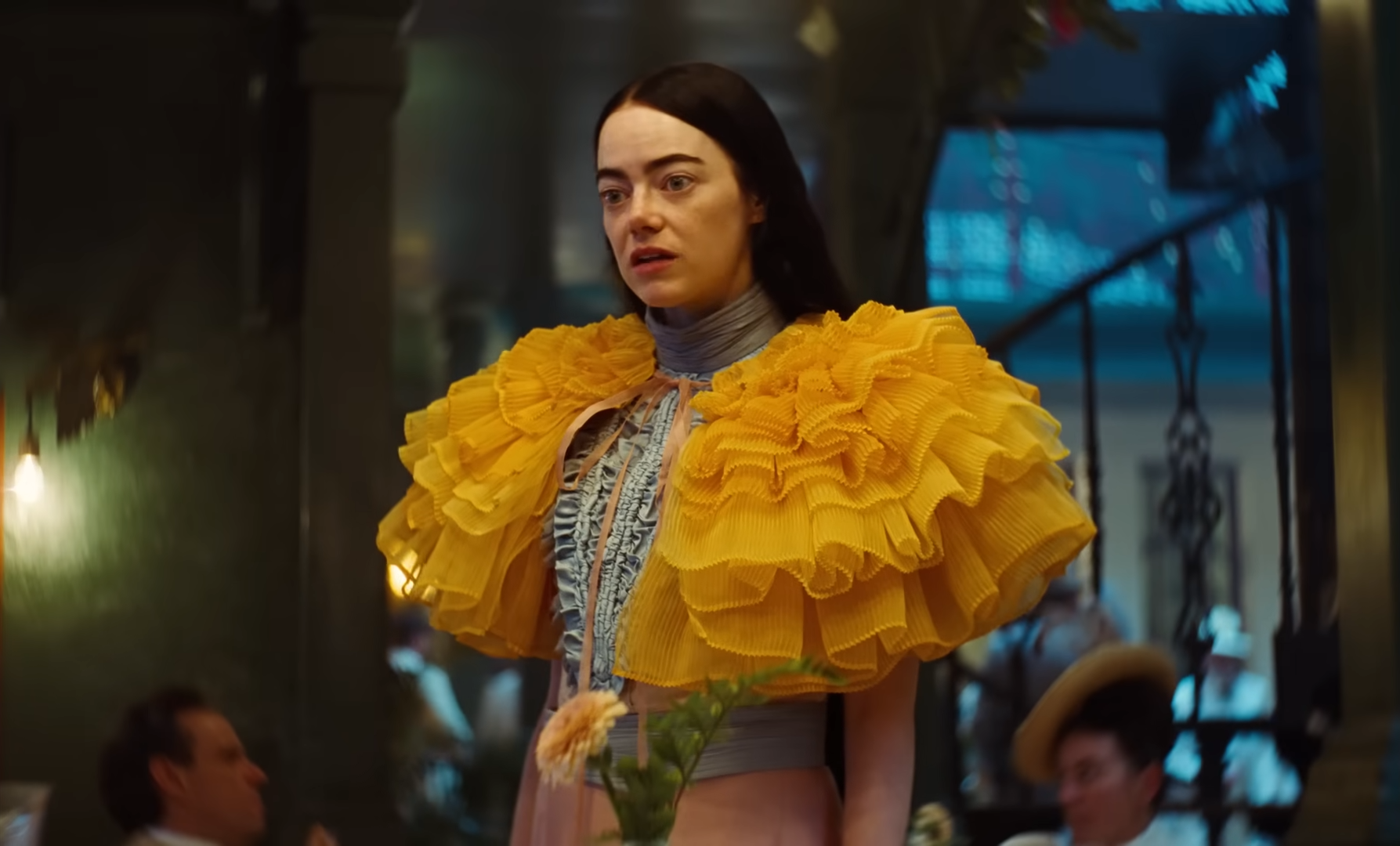
The physical comedy and rapport that Stone and Ruffalo share as adventuring partners here is gleefully charming, especially during one dance scene calling back to The Favourite that lets them unleash ridiculous moves to a bizarre honking instrument. It is when Bella begins to rub up against Duncan’s misogynistic entitlement that her place in the world slowly comes into focus, even as she remains ignorant to her origins. Distressed by the pain she sees in her travels, she tries to donate a large portion of Duncan’s wealth to the needy, only to naively let it fall into the hands of untrustworthy sailors. When she eagerly takes up employment as prostitute against his wishes, she grows further disillusioned with the discovery that some men find pleasure in her pain, and that her employer would prefer her to remain submissive.
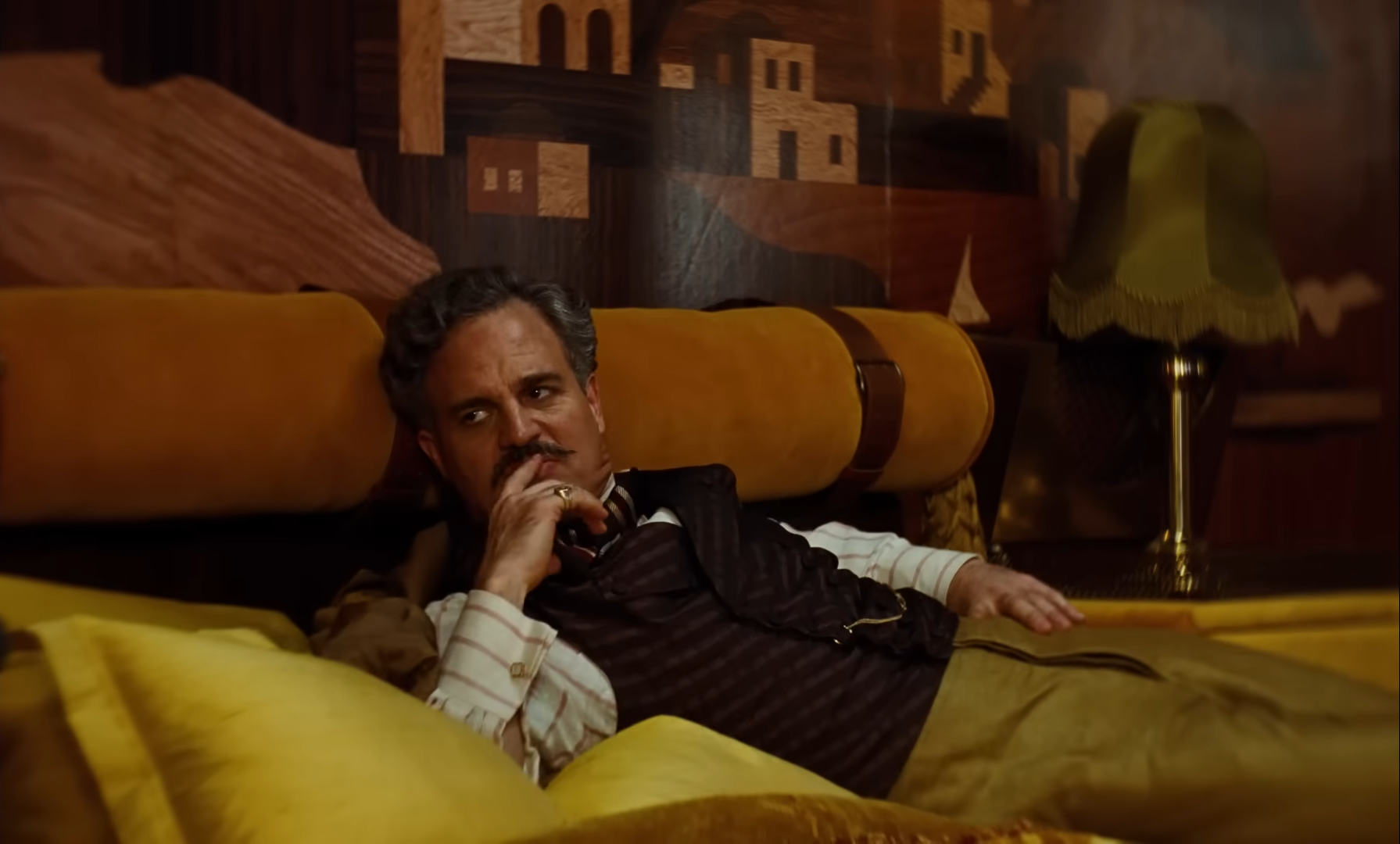
Deepening the question of Bella’s bodily autonomy though is the very nature of her being – this is not her body, but her mother’s. Her belly bears the scar of her own birth by C-section, strangers recognise her as a different person in public, and late discoveries about her mother’s suicide complicate the relationship they never had. Having strayed from God’s domain and partnered with a gutless chauvinist, she is forced to become her own maternal guide in a misogynistic world, navigating its arbitrary social conventions through little more than trial and error. She learns of indulgence and restraint, generosity and self-care, taking each in moderation as her mind slowly catches up to her physical appearance. Jerskin Fendrix reveals his aggressively abstract score to be a perfect mirror of this journey as well, initially offering a window into her infantile mind with untuned strings, breathy pipes, and jarring mallets, and then gradually layering in more complex textures as these sounds mature alongside her.
Vacuous pretensions of respectable society be damned, Bella is a woman looking to carve out her own peculiar path through the world, rebelling against God’s creation even as she expresses a deep, abiding love for him. It matters little that Lanthimos’ final act sticks an unsteady landing, heading off on a sudden new adventure that continues past the point the story should have wrapped up. Films as boldly ambitious and wickedly funny as Poor Things are so exceedingly rare that flaws are simply part of the lavishly embellished package, relishing the magnificent improbability that any natural or manmade creation should ever exist to begin with in a world as preposterous as our own.
Poor Things is currently playing in theatres.
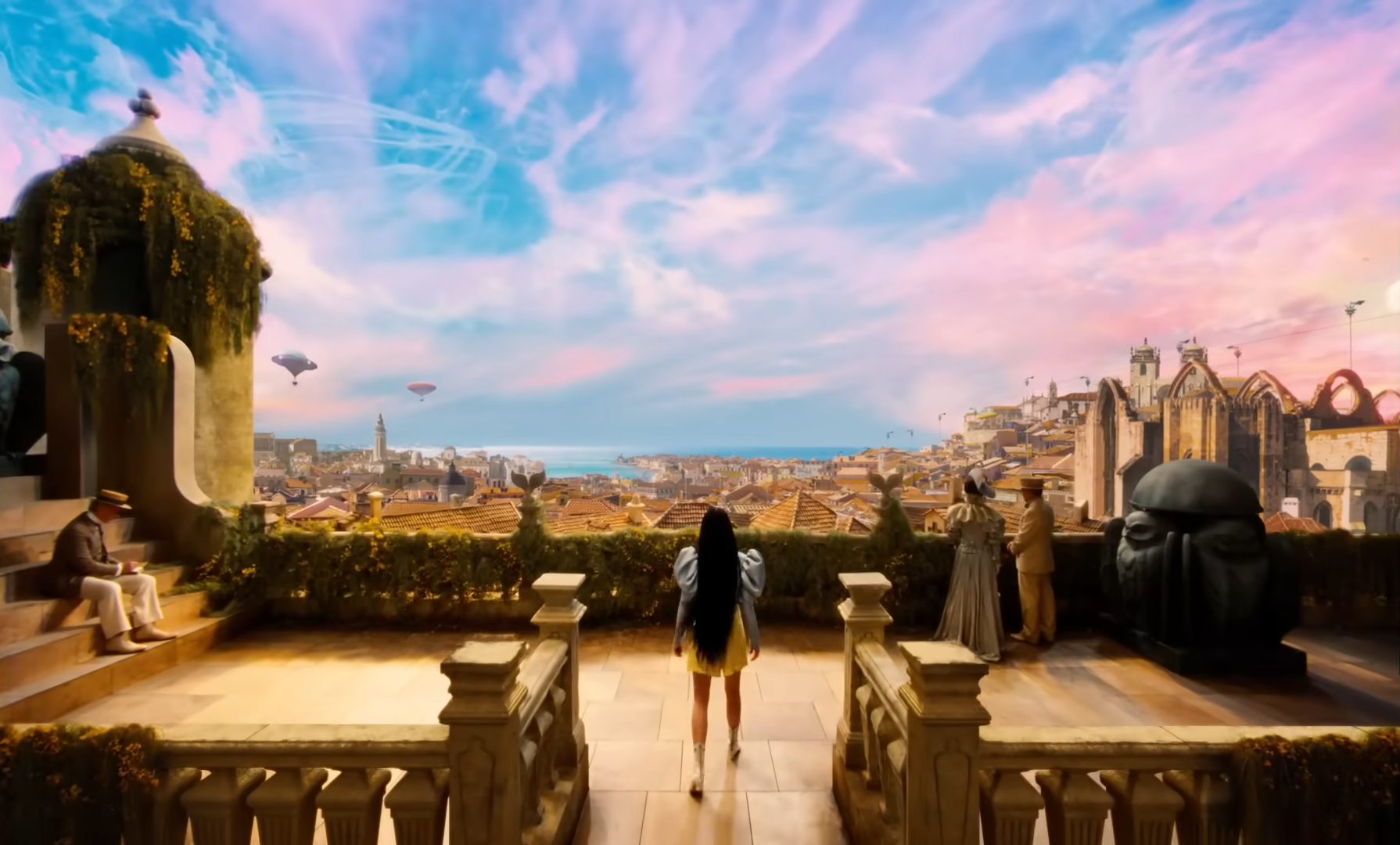

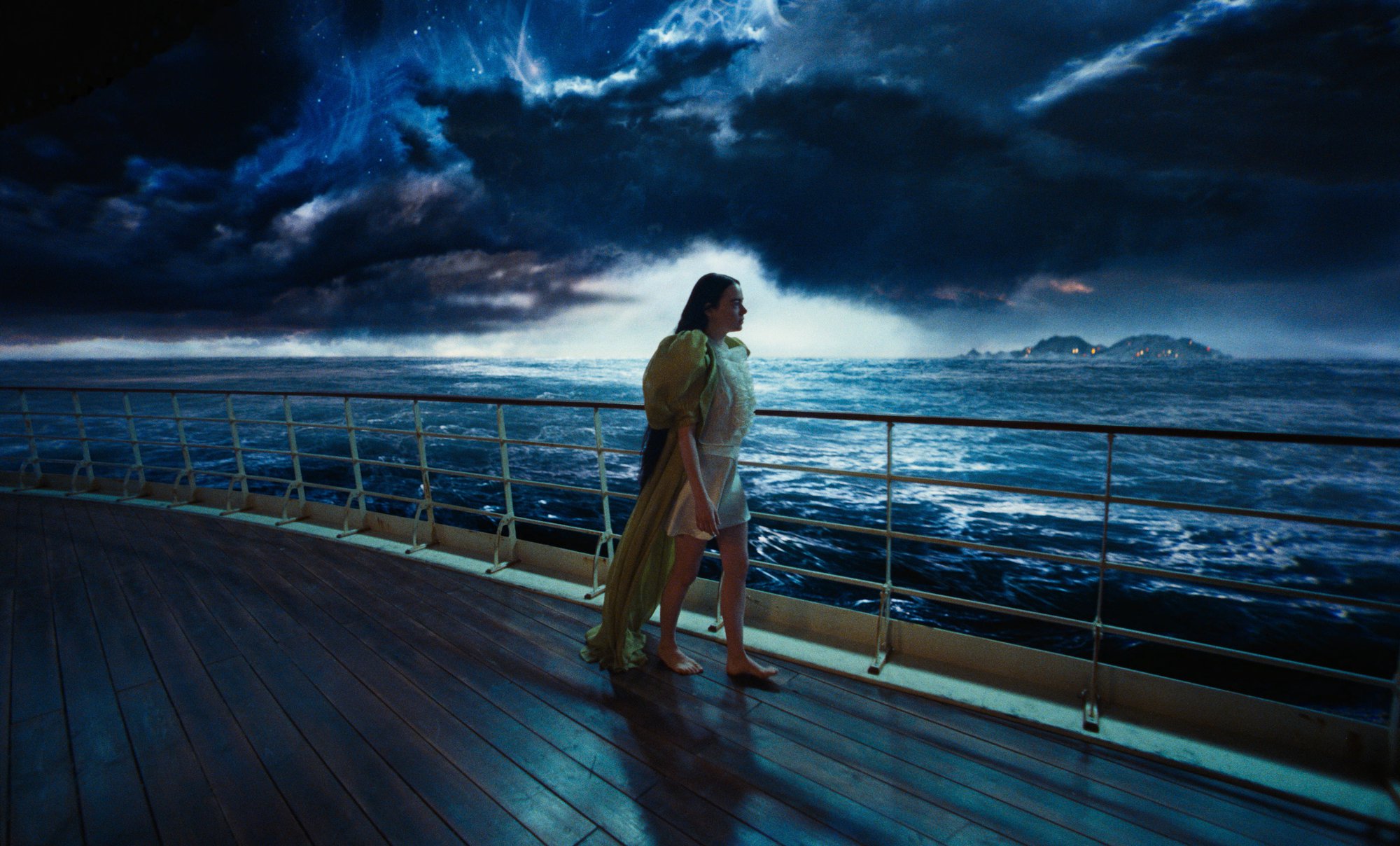
Pingback: 2024 Oscar Predictions and Snubs – Scene by Green
Pingback: The Best Films of 2023 – Scene by Green
Pingback: 2023 in Cinema – Scene by Green
Pingback: The 25 Best Male Actors of the Last Decade – Scene by Green
Pingback: The 25 Best Female Actors of the Last Decade – Scene by Green
Pingback: The 10 Best Screenwriters of the Last Decade – Scene by Green
Pingback: The 10 Best Film Editors of the Last Decade – Scene by Green
Pingback: The 10 Best Cinematographers of the Last Decade – Scene by Green
Pingback: The 25 Best Directors of the Last Decade – Scene by Green